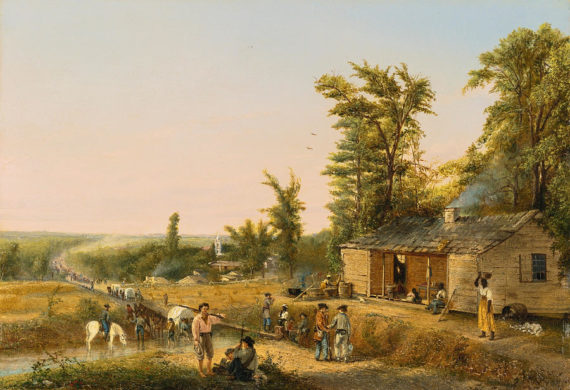A review of John Gildart: An Heroic Poem. (H. Young & Co., 1901) by M. E. Henry-Ruffin and Plantation Songs: For My Lady’s Banjo, and Other Lyrics and Monologues (J.W. Otts, 1901) by “ Eli Shepperd.”
The mental emancipation of the South is proved by nothing more clearly than by the work of her women. Prior to the war, we made the wives and daughters of the Southland too far the victims of our timid care. They were scarce permitted to touch the latchets of their own shoes, were kept in unblissful ignorance of the “strenuous” affairs of life, and the winds of heaven were not let to visit their cheeks too roughly. This was knightly, but it was unjust to the best that Southern womanhood held latent. The rough friction of war brought these untrained gentlenesses sharply face to face with new and serious duties. How they were fulfilled History and Poetry have both told. At the close of the bitter struggle, even direr necessity brought some of the tenderest nurtured of them to actual drudgery and menial vocation. Again the truth of good blood told, and only when the pressing need was past did the self-asserted abilities of the Southern woman seek new and more congenial vent in literary work. How surprising were the strides of those unused feet toward the great goal is too familiar for detailing here.
The latest of Alabama women’s contributions to the overcrowded literature of this day comes in the shape of the two books named. Mrs. M. E. Henry-Ruffin is no tyro in poetry-writing. Her press and magazine contributions have long since earned her the right to a book, and she has given us a good one. “John Gildart” is the true and touching story of a brave and discipline-crazed private of the Confederate army. Learning that his home had been burned by the enemy, his wife ill, and his furlough unattainable, this brave fellow “deserted,” was captured, tried, and shot to “the dog’s death! ” Such is war, especially under such disciplinarians as Bragg and Sherman. Truly did the latter say: “War is hell!” Mrs. Henry’s romance in verse is literal truth. Her hero was a living Confederate from the mountains of East Tennessee, and all the facts she weaves into verse bear the test of historic accuracy. The poem, in itself, is noteworthy for simplicity and touching truth to nature, and to the workings of the human heart under the lash of adversity. Of it the London Times said in a flattering review : “It has the flavor of the country possessed by Goethe’s ‘Hermann and Dorothea.’” To us of the South it has the flavor of reality, presented in smooth and graceful verse. It is illustrated with seven specially made drawings, reproduced in half-tone, that recall familiar and vivid days of the war.
The other volume is wholly distinct in tone, but is equally reminiscent of unforgotten days. It embalms, in song and picture, the oddities and faces of those “old-time darkies” who are becoming a fast-vanishing type, under the pressure of a too rapid process of civilization and a too ignorant—and all too swift—system of misnamed education. The volume is a perfect gem of the bookmaker’s most advanced art. It has the juste milieu of ornamentation, escaping that lavishness which is prone of late to smother its subject. It is not—taste be praised!—an “ornamented book.” Far better, it is illustrated, and with photographs from models, carefully selected by the artistic eye of its compiler, and posed by her as well. Her selections are equally as judicious. They are divided into two parts: “Songs for My Lady’s Banjo” and “Hymns of the Black Belt.” The latter predominate, but are all characteristic, and show the loving touch in their selection. As “Eli Shepperd” conceals his name, it is not given; but the little Alabama town that she claims as home has full right to rejoice thereat. The book is one which, even in less tasteful setting, would have a distinct historical value. A dainty pleasure to-day, it will become a precious reminiscence in the South in others, when “mammy” and the “fiel’ han’” and the shouting negro preacher have been trodden into the past by the hot hoof of Progress. Readers North, as well as South, owe a debt of gratitude to both these Alabama women. One has told “an ower true story” with simplicity and touching tenderness. The other has caught the essential spirit of a time and of a race, as to which the very glibbest praters remain in deepest ignorance.







